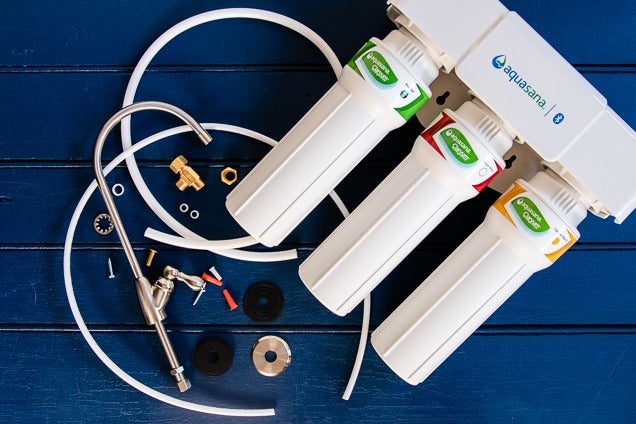Imagine taking a swig of water to quench your thirst, only to find yourself wondering if it is as clean and risk-free as it ought to be. As concerns about the quality of water continue to grow, an increasing number of individuals are contemplating whether or not it is worthwhile to purchase a water filter.
In this blog, you will explore the key factors to consider when deciding if you buy a water filter in Australia is right for you.
1. Assessing Your Water Quality
The first step in determining whether or not to purchase a water filter is to evaluate the quality of the water you use. The water that you drink can be tested to determine whether or not it contains contaminants such as chlorine, lead, or bacteria.
It is possible to purchase a home testing kit or take advantage of the services offered by the numerous health departments in the area. Knowing what is in your water can help you determine whether or not you require a filter and which type of filter might be most suitable for your circumstances.
One example of this would be if your water contains high levels of chlorine or sediment; in order to address these issues, you might require a particular kind of filter. Assessing water quality ensures you make an informed decision and choose a filter that effectively improves your water.
2. Understanding Different Types of Water Filters
There are various types of water filters, each designed to address specific contaminants. Common types include activated carbon filters, which remove chlorine and improve taste; reverse osmosis systems, which filter out a wide range of contaminants; and UV filters, which kill bacteria and viruses.
Knowing the different types helps you choose the right filter based on your water quality and needs. For example, if you’re concerned about lead, a reverse osmosis filter might be more effective. Understanding these options helps you select a filter that meets your specific requirements and improves your water quality.
3. Evaluating Your Household Water Needs
Think about how much water your household uses daily and what purposes it serves, such as drinking, cooking, or washing. If you have a large family or use a lot of water, you might need a filter with a higher capacity or a whole-house filtration system.
Conversely, if you only need to filter water for drinking and cooking, a smaller, point-of-use filter might suffice. Evaluating your household needs ensures you choose a filter that provides adequate coverage and fits your lifestyle.
4. Considerations for Cost and Maintenance
Filters vary in price, from inexpensive pitcher filters to more costly whole-house systems. Additionally, some filters require regular replacement of cartridges or maintenance to ensure they work effectively.
Factor in both the initial cost and ongoing expenses, such as replacement filters and maintenance, when making your decision. A more expensive system might offer better performance and longer-term savings, but it’s important to choose one that fits your budget and maintenance preferences.
5. Analyzing Health and Safety Benefits
Filters can remove harmful contaminants like lead, chlorine, and bacteria, which might be present in tap water. Reducing these contaminants can improve your water’s taste and smell and protect you from potential health risks.
For example, if your water supply has been contaminated with lead, a filter can help reduce exposure. Analyzing these health benefits helps you understand the value of investing in a water filter and ensures that you are making a choice that supports your family’s well-being.
6. Comparing Filter Effectiveness and Certification
Compare the effectiveness and certification of different filters to ensure you’re choosing a reliable product. Try to find filters that have been examined and approved by reputable organizations such as the National Sanitation Foundation International or the Water Quality Association.
Certification indicates that the filter has been tested for performance and meets specific standards. Compare how well different filters remove contaminants and whether they have been independently verified.
This helps you choose a filter that will effectively improve your water quality and assures that it performs as claimed.
7. Exploring Environmental Impact
Some filters produce waste, such as used cartridges or disposable components, which need to be disposed of properly. On the other hand, using a filter can reduce the need for bottled water, which helps decrease plastic waste.
Explore options for filters with recyclable or reusable components to minimize environmental impact. Weigh the benefits of reducing plastic waste against the environmental costs of filter disposal to make a more sustainable choice.
8. Reading Reviews and Getting Recommendations
Finally, read reviews and seek recommendations when choosing a water filter. Look for reviews from other users to see how well a filter performs and whether it meets their expectations. Check online reviews, and consumer reports, and ask for recommendations from friends or family who use water filters.
Gathering this feedback helps you make an informed decision and choose a filter that has been well-regarded by other users. Reviews and recommendations provide insights into the filter’s effectiveness, reliability, and overall user satisfaction.
Achieve Better Water Quality and Health
Deciding whether to invest in a water filter is a significant step towards improving your water quality and overall health. Achieve better water quality and health by evaluating your options and selecting the right water filter for your needs. With the right choice, you’ll enjoy cleaner, safer water and contribute to a healthier lifestyle.




